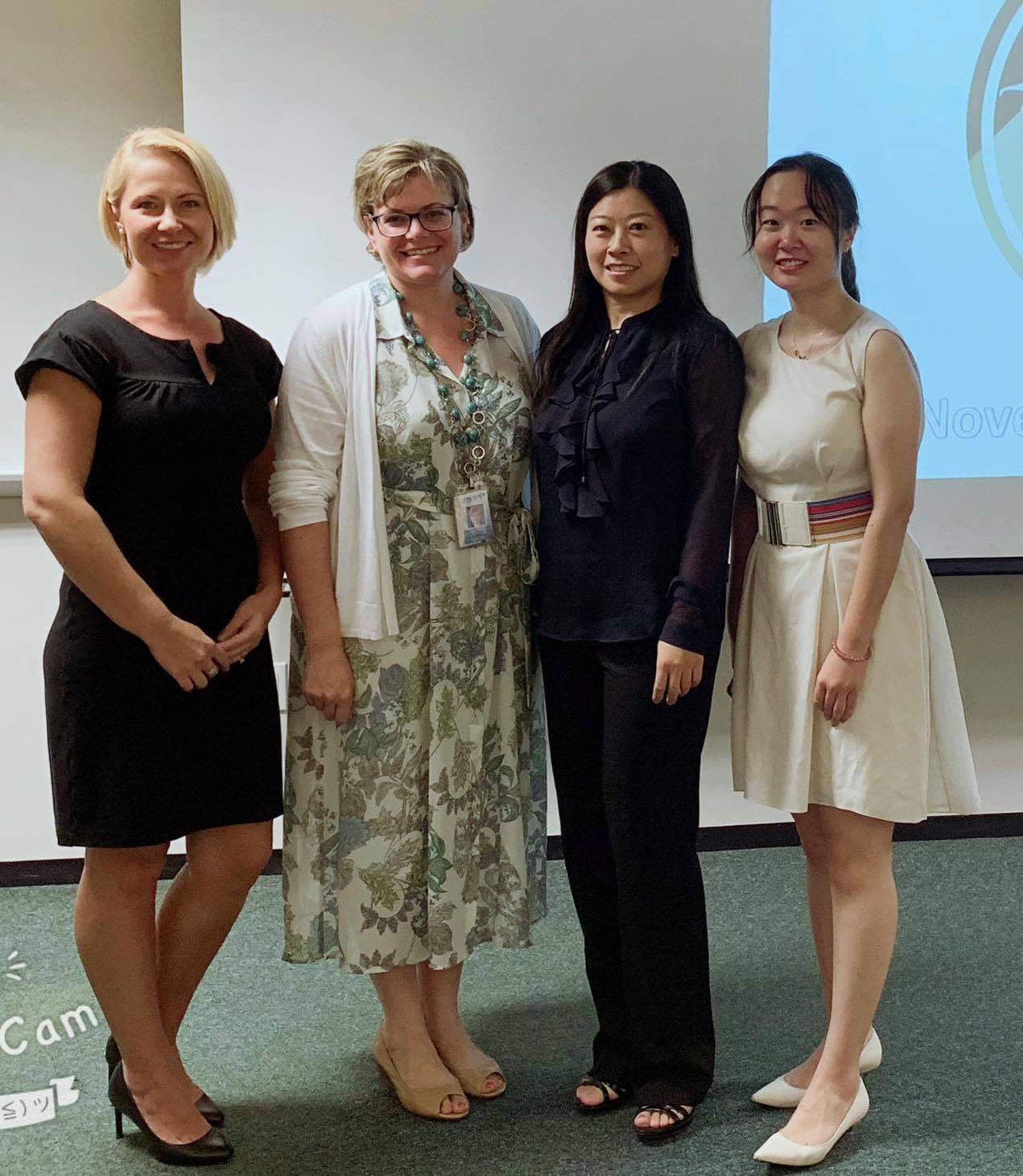Decision Support Tool For Parking Management At Universities

Parking on university campuses is always a problem due to too many students driving to campus (demand) and insufficient number of stalls (supply). Most universities use parking permit price to manage the demand. They also zone the parking lots to control the supply. Both strategies shift the equilibrium point between the demand and the supply. UTEP Civil Engineering Professor Dr. Kelvin Cheu, Ph.D. student Okan Gurbuz and graduate student Ximena Jauregui is developing a decision support tool to help universities to manage parking. Their research was supported by Center for Transportation, Environment and Community Health (CTECH), a University Transportation Center funded by U.S. Department of Transportation.
Cheu, Gurbuz and Jauregui have been studying parking issues and management strategies at four university campuses (UTEP, Cornell University, University of California at Davis and University of South Florida), and have collected data from 208 universities in U.S. They have developed two equations. One predicts the “base” price of a student parking permit per year (12 months); while another one estimates the fraction of students who will purchase parking permits. These equations use campus setting, cost of living in the city, tuition fee, weather, enrollment, faculty/student ratio, etc., as factors. In addition, the demand for student permits depends on the “base” price and the “base” price set by the university depends on the demand. Both equations must be solved iteratively.
In practice, the actual student permit prices deviate from the “base” price. The team has also developed a differential pricing procedure to determine the differences in the permit price based on the geographical locations of the lot, lot type (garage, covered, open lots), shuttle service frequency and walking time to the final destinations on campus.
The model (equations and procedure) may be applied to, for example, study the “what-if” scenario if a university is to increase in permit price in the next semester; or predicts the situations several years into the future when the enrollment, cost of living, tuition fees increase, but with and without parking capacity expansion. The team have presented this research during the CTECH Annual Meeting at Davis, California on November 9, 2018. They will present their model and its applications at the Transportation Research Board Annual Meeting in Washington D.C. on January 14, 2019.
Eventually, they want to demonstrate that better parking management strategy (balancing demand and supply) will lead to efficient use of the parking stalls and at the same time keep the parking search time to the minimum. This will reduce emissions, and improve campus’s community health.
Photo: UTEP Ph.D. student Okan Gurbuz and his poster at CTECH Annual Meeting.
Cassandra Borchers presents at the USF Women in Transportation Lecture Series

On November 1st, 2018, during the Women in Transportation Lecture Series, USF hosted Cassandra Borchers, AICP, Chief Development Officer of Pinellas Suncoast Transit Authority. She gave an hour lecture focusing on the operations, innovation, and leadership. Her lecture was followed by questions from the audience and discussion that provided valuable insights into the challenges of transit operation, public involvement and policies.
Summer Research Opportunity at Cornell University

The Center for Transportation, Environment & Community Health is looking for students interested in transportation/civil engineering as it relates to environment and public health for the 2019 REU Program taking place this summer June 4 – August 13, 2019.
The chosen undergraduates taking part in this ten-week program will receive hands-on experience through research, with applications to transportation/civil engineering! The research projects are designed and supervised by faculty and technical staff. Interns then work with their assigned faculty and graduate students on projects. A convocation is held in August to allow interns the opportunity to present their work to their peers in a concise scientific presentation. Interns also must complete a written report, akin to a research paper, summarizing the findings of their research project. These reports are published and distributed to the interns and sites, the National Science Foundation (NSF) and many others.
Participants receive a $5,000 stipend, plus housing and reasonable travel expenses. Full participation in the ten-week program, convocation, and final reporting is mandatory.
Learn more here: http://www.reu.nnin.org/nnin11_login.php
ONLINE APPLICATION DEADLINE: Wednesday, February 13, 2019 (5:00 p.m. Pacific, 8:00 p.m. Eastern)
Photo: 2018 REU undergrad participant, Sayeeda Jahin Aishee
Mayra Chavez won the UTEP CTECH Ph.D. Dissertation award

Mayra Chavez’s Ph.D. Dissertation title is Assessing Children’s Spatiotemporal Exposures to Transportation Pollutants in Near-Road Communities.
Chavez is in the Li Research Group and her research addresses CTECH’s focus area of Behavior, Active Transportation, and Community Health, which studies the links between travel behavior, active transportation, the built environment, and health.
Chavez writes, “Children living in near-road communities are constantly exposed to traffic-related air pollutants and their health could be adversely impacted by these pollutants. A temporal and spatial characterization of children’s exposures would fill out the data gap between the exposure concentrations and health outcome measurements for near-road communities.” Chavez’s lead faculty advisor remarks, “With her excellent academic performance and potential to succeed in transportation engineering, she will no doubt be a role model for women engineers and Hispanic Americans.”
Pictured in this photo are Dr. Wen-Whai Li, Dr. Anthony Tarquin, Mayra Chavez, and Dr. Leah Whigham.